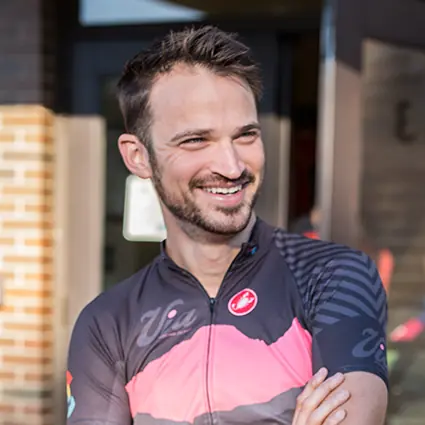Jimmy Carter Turns 100 Today. Let's Remember His 1976 Visit to South Bend.
Former President has had a long-lasting relationship with the city
BY AARON HELMAN // POSTED OCTOBER 1, 2024

By October 1976, Jimmy Carter was used to being recognized wherever he went. It was a good quality for a Presidential candidate to have, especially one who had been relatively unknown just a month prior. But there were a handful of times when Carter would have rather eschewed the spotlight altogether, usually on Sunday mornings when the famously religious candidate sat in on a church service wherever his campaign had him that day. Carter would bristle at the way his presence would overshadow the Sacred Hour, wishing he could switch of his celebrity, just for long enough to become an anonymous presence in the reverent room.
That's part of what made his October 10 campaign stop in South Bend so special.
It was less than a month before the election when Carter arrived in the city with an overfilled schedule. But it was also a Sunday, and Sunday morning church wasn't negotiable. With a plethora of large and historic churches in South Bend, it might have seemed a question of which one Carter's campaign would choose. In the end, it chose none of them.
Carter sat in on an adaptive worship service for severely mentally handicapped children at the Northern Indiana State Hospital. It was the first time in months that he'd sat in a room full of people who had no idea who he was. For a Jimmy Carter who was weary of the campaign trail, it might have been a relief.
But the relief wouldn't last for long, and the politicking couldn't be silenced for more than a few minutes.
Before he even left the State Hospital, Carter issued a brief statement, lambasting then-President Gerald Ford for vetoing six bills that were designed to help disabled Americans. Carter pointed out that Ford's veto of the 1974 Rehabilitation Act was overridden by both houses of Congress by the largest margins in the nation's history. As he had since the beginning, he promised that a Carter presidency would be a more compassionate one.
Carter would continue the theme just a little bit later during a speech at the University of Notre Dame, calling for a renewed commitment to human and civil rights. Amid the echoes of a Vietnam War that had only just ended, Carter redoubled a hope that the United States could once again become a beacon of light and hope for all humankind. Naysayers found something disputable in that last statement, one that seemed to imply that America's shining light had gone out.
As soon as that speech was ended, Carter was dashed out for media obligations, shooting a television spot at WNDU and granting an interview to Jack Colwell of The South Bend Tribune. Then it was time for a fundraising appearance at The Morris Inn where Carter spoke to the inequity of a justice system that provided lenience to the powerful and cruelty toward the weak. If his entire campaign could be summarized in a few words, he spoke those words in South Bend:
"The thing that we ought to remember is that in addition to the competence of government, it ought to be compassionate. Competence and compassion are not incompatible."
And then, just like that, Carter's October 1976 visit to South Bend was over. He would be present at a Chicago fundraising event by dinnertime.


